
Advocacy and Leadership by those Impacted by Homelessness
The San Diego Homeless-Experienced Advocacy and Leadership (HEAL) Network brings the voices of individuals with lived experience of homelessness— who have been most impacted by this crisis— into critical local discourse in a meaningful and effective way, to elevate the discussion, to emphasize the humanity of the affected individuals, and to move public policies toward strategies that are more focused on the individuals who are impacted by this crisis. The program was launched in April 2019 with two training series in North and Central parts of San Diego county to help participants gain knowledge and understanding of their role in influencing a broader discourse on homelessness, and since then, have been engaging in advocacy opportunities to shape public policy on this issue.
HEAL Network’s 2025 Policy Priorities
-
Establish a feedback mechanism for voices of lived experience to provide honest and accurate input, without fear of consequences or retaliation
Person-centered approach to providing support (rather than by merit)
Keep families with children together
Feedback tool on services to increase accountability to provide adequate services
Legal services accompanied by case management
Improving the structure of prioritizing who receives services and resources
Adopting an evidence-based approach to improving outcomes
-
Provide shelter for homeless individuals and homeless veterans exiting the hospital and treatment centers to continue to recover
Increase shelter beds in North County
Invest in programs and services, such as
Rapid rehousing
Rental assistance program
Hotel and motel voucher
Job training programs
System for evaluating programs and services
Mental health services
Reduce barriers in accessing benefits (e.g. general relief & SNAP) and housing
Reform discriminatory practices within programs and services provided (e.g. by age, race, relationship status, etc.)
Allow the option of combining benefits with partner
Address needs of those who have been on the waitlist for a long time, as newly eligible persons get prioritized on the list
Close the gaps between programs to create realistic pathways towards upward mobility
Support clients in maintaining sustainable income before ending welfare programs and placing them at risk of homelessness
Coordinated outreach & crisis response team
Homeless outreach supported by social service providers, case workers, addiction counselors
Move away from law enforcement, to more trauma-informed and person-centered approach by social service providers
Peer to peer training between individuals with lived experience of homelessness and social workers—building capacity of individuals who have experienced homelessness to serve on outreach teams
Real case-management with comprehensive intake and person-centered approach. Provide counselling and trauma-informed care to address causes of homelessness and removing challenges at individual level
Programs should have clear pathways to housing, vouchers, and other services in a centralized and consolidated way that is accessible to individual clients
Clients should have the ability to submit evaluation/review on services they received
-
Streamline affordable housing financing and development
Streamlining access to housing and making it easier to maintain housing
Shorten wait-time for rapid re-housing and emergency homeless assistance
Extend the period of time for voucher-holders to find housing in a competitive rental market
Verify sustainable income before rental assistance ends
Increase services and resources for affordable and supportive housing residents



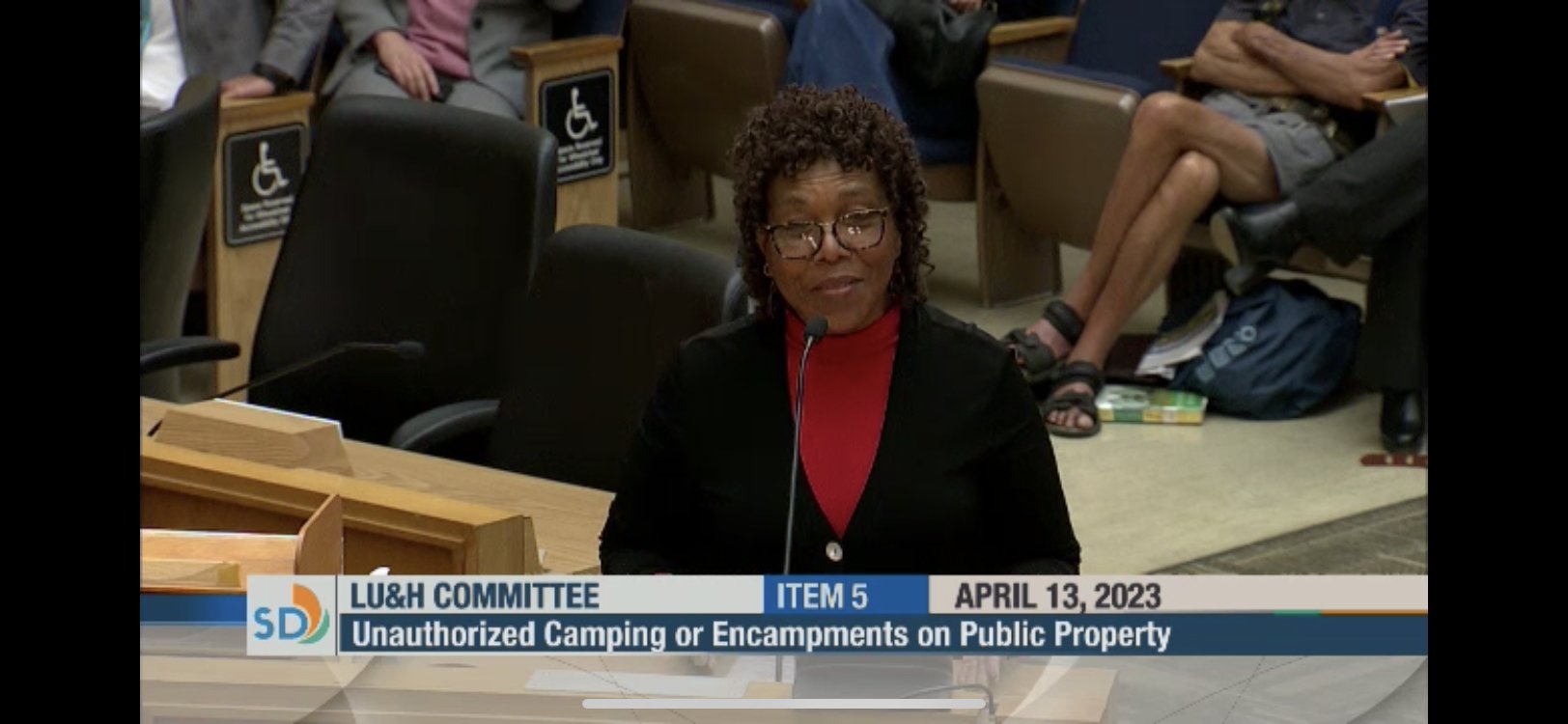
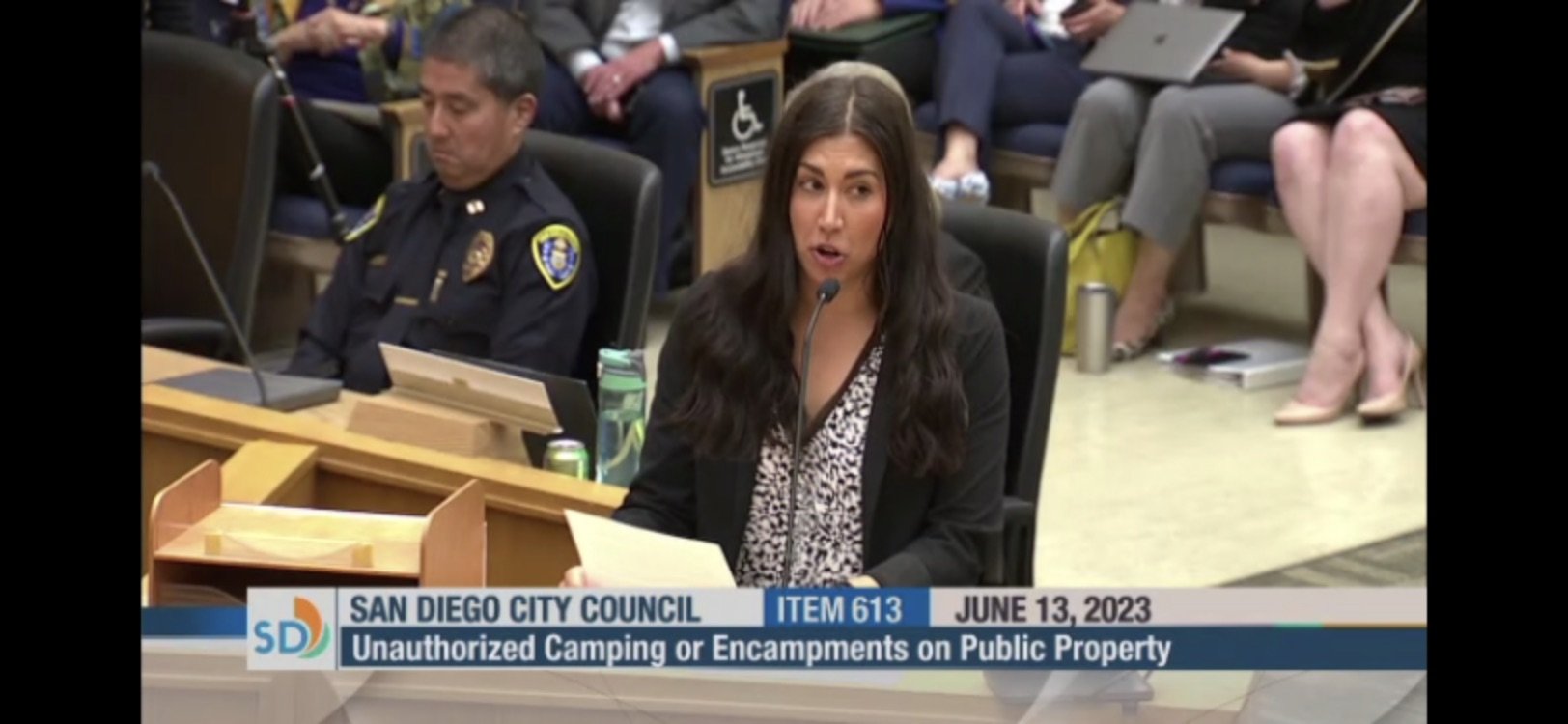

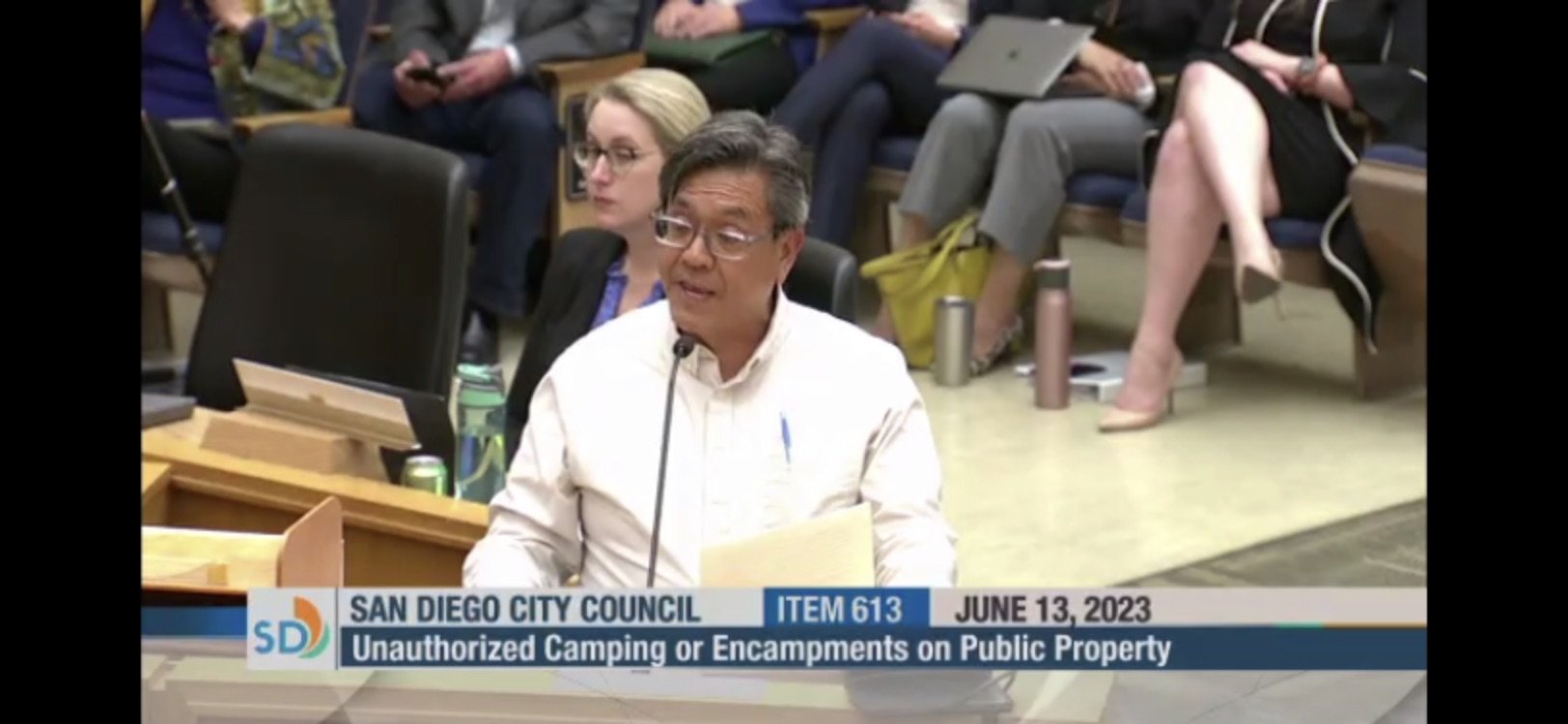

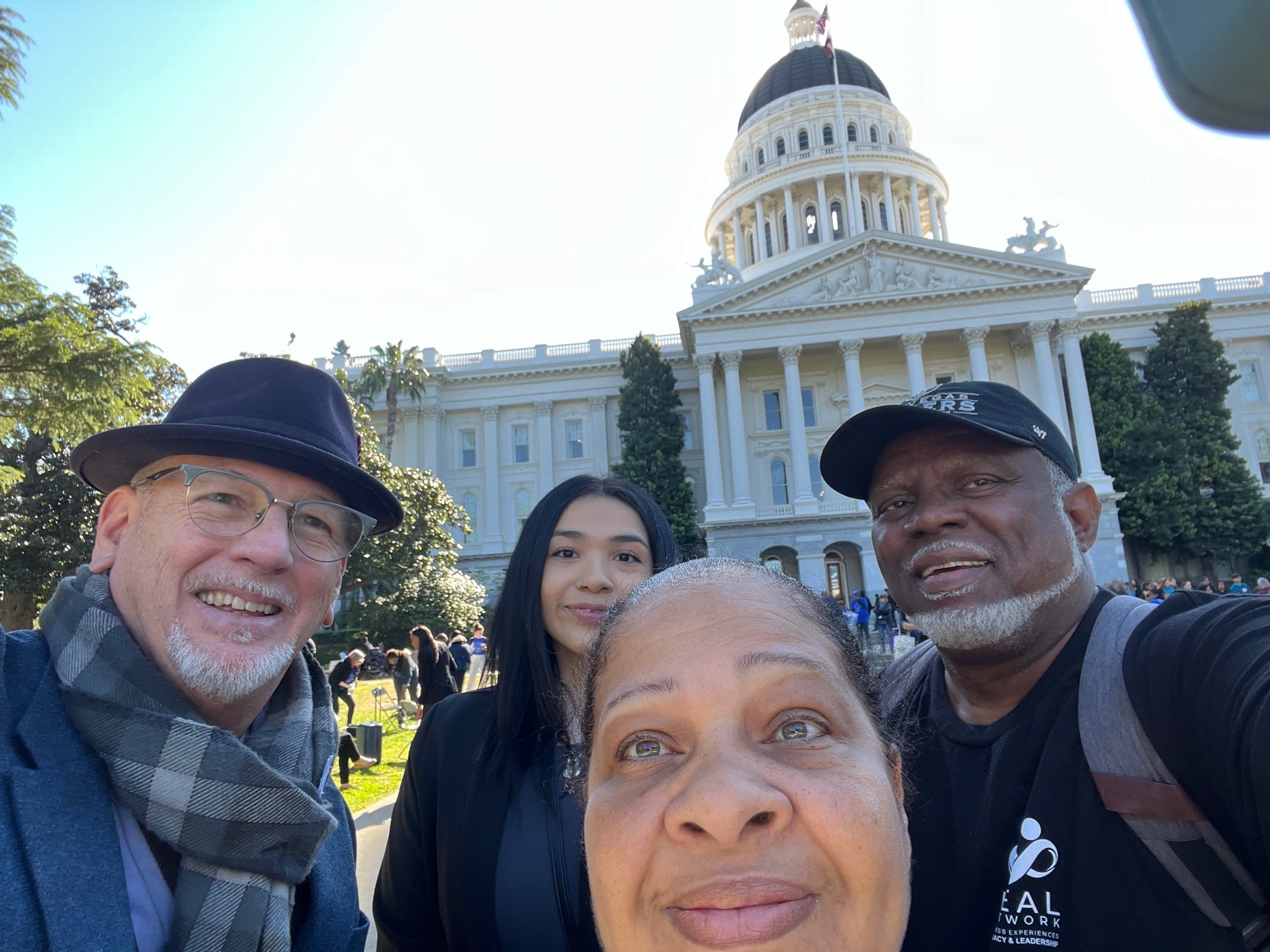

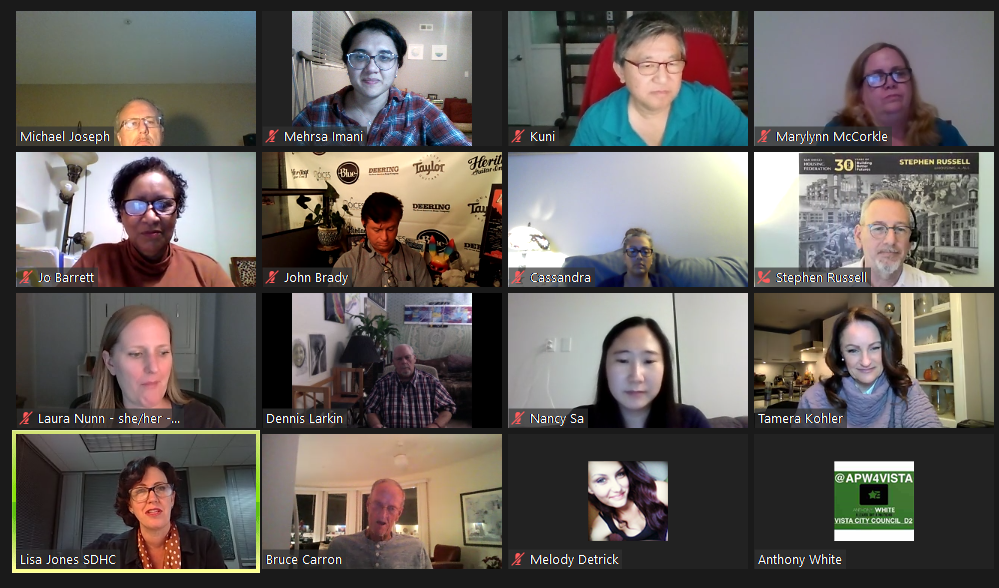
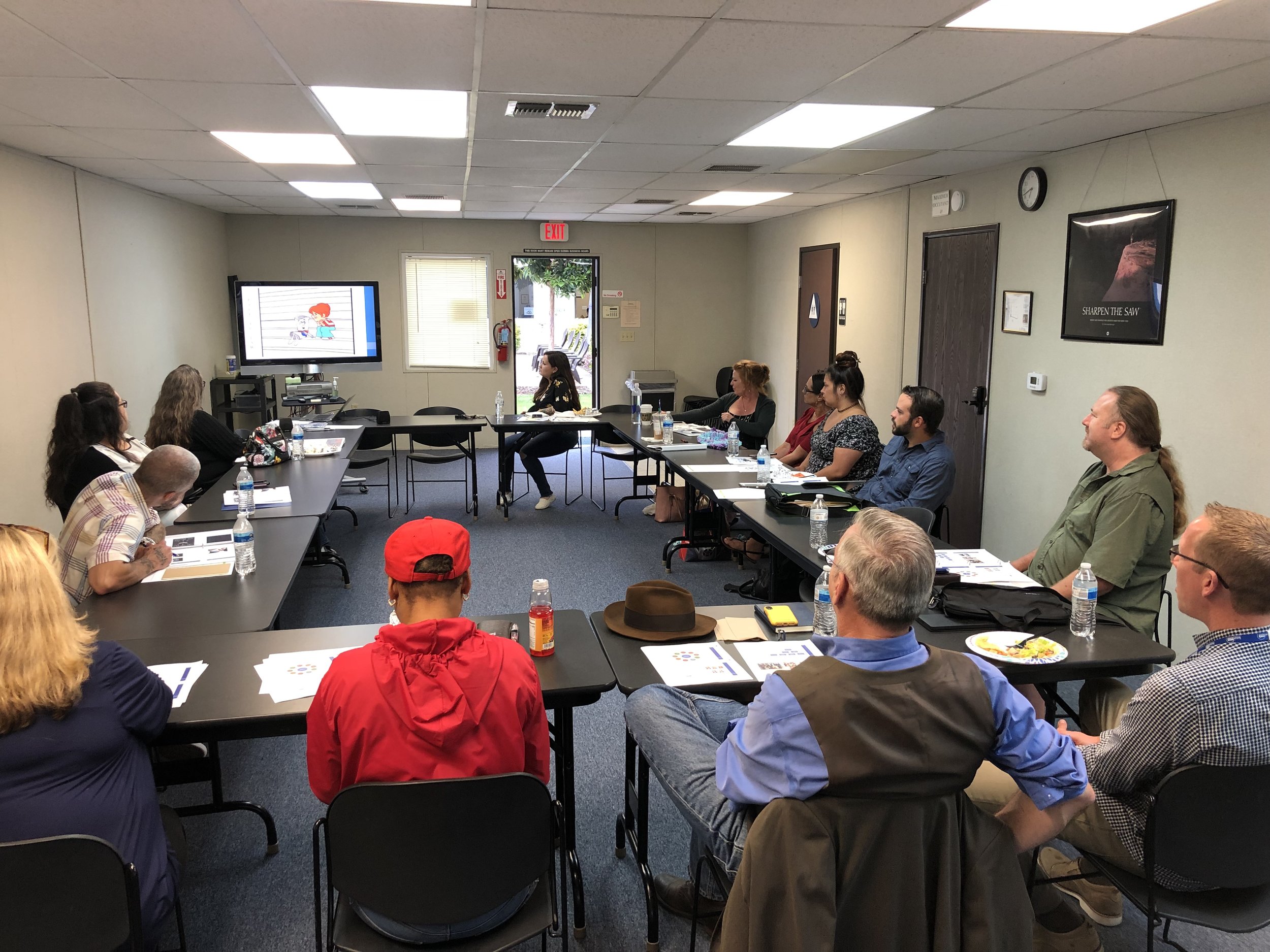

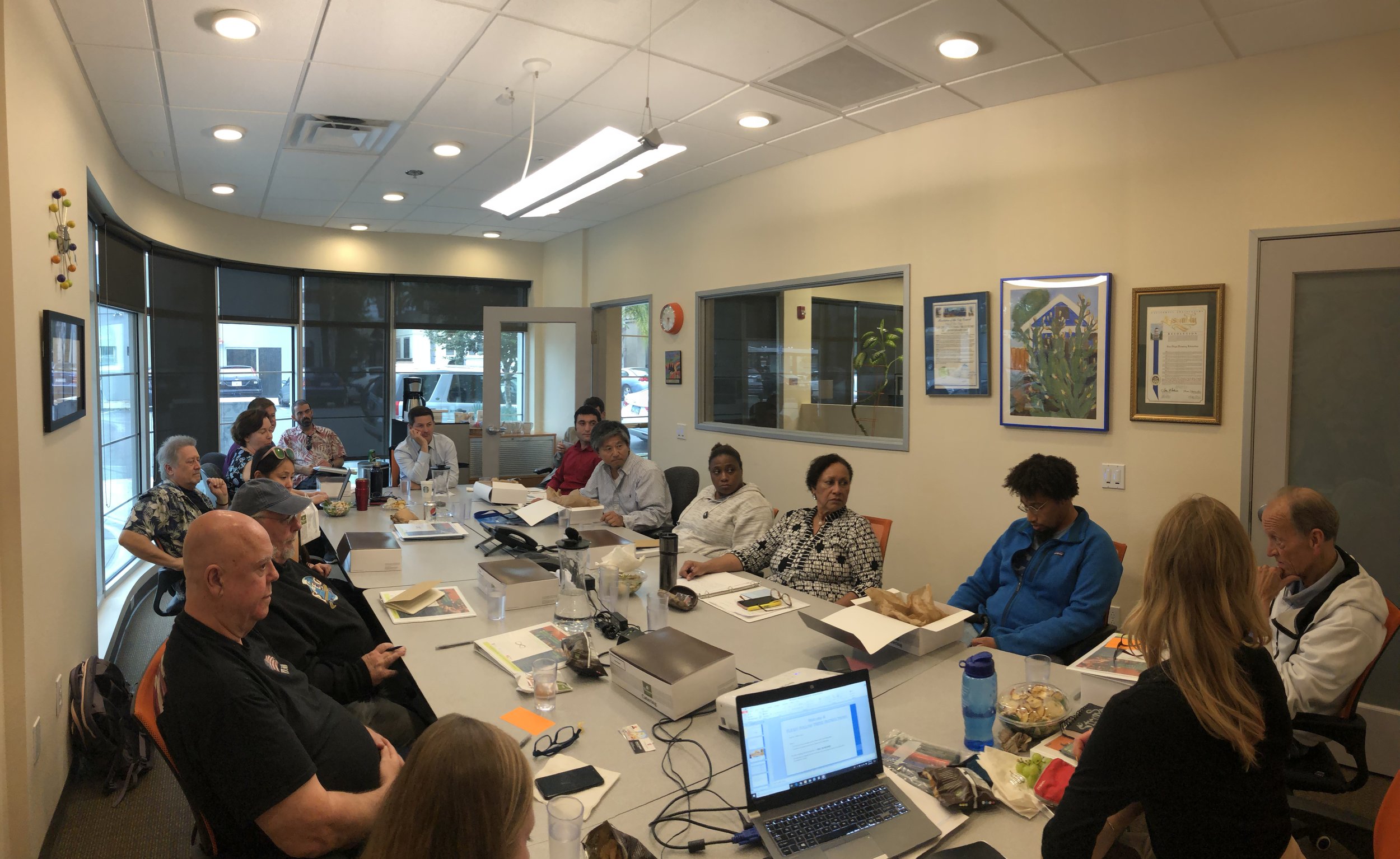
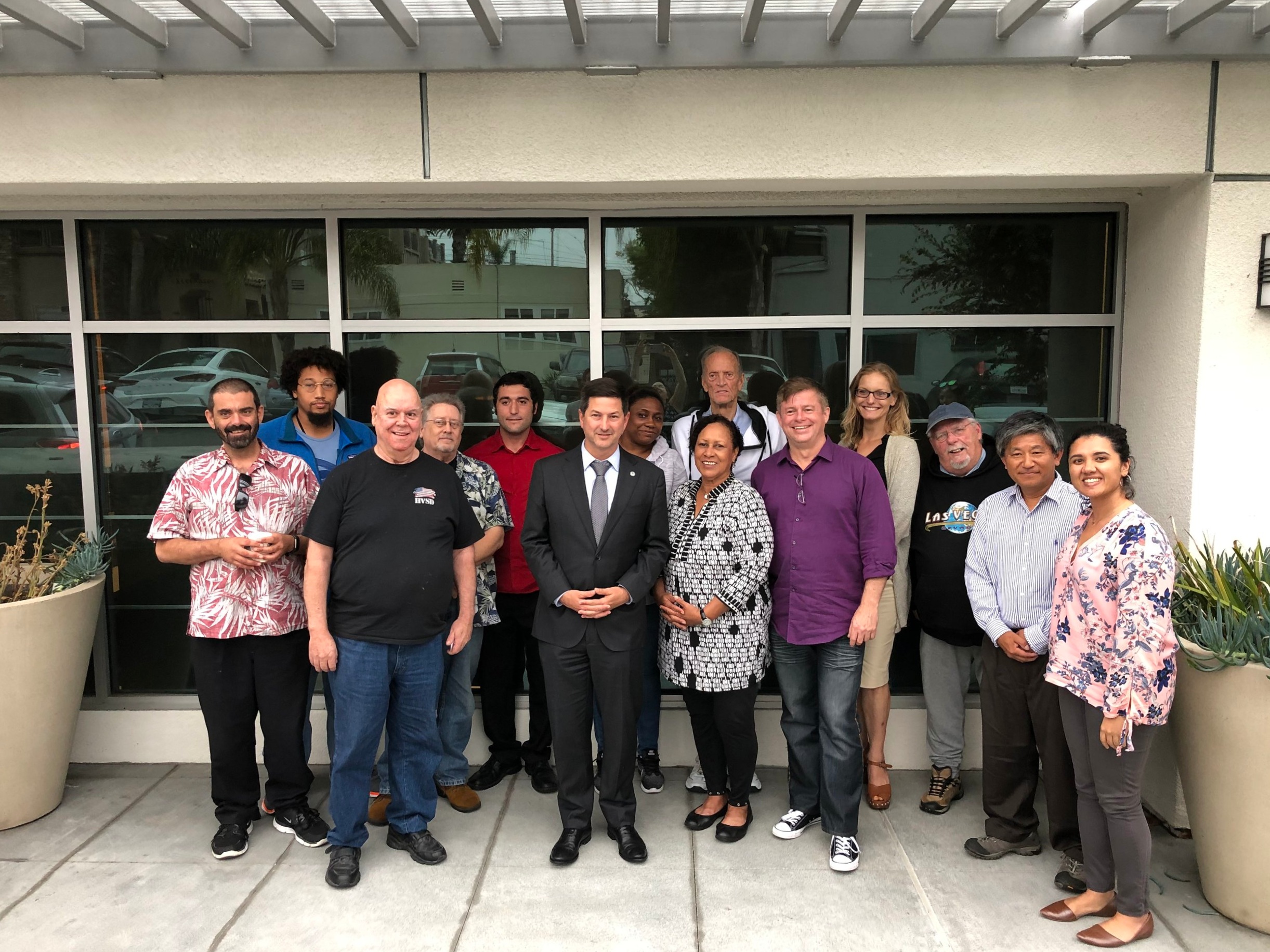
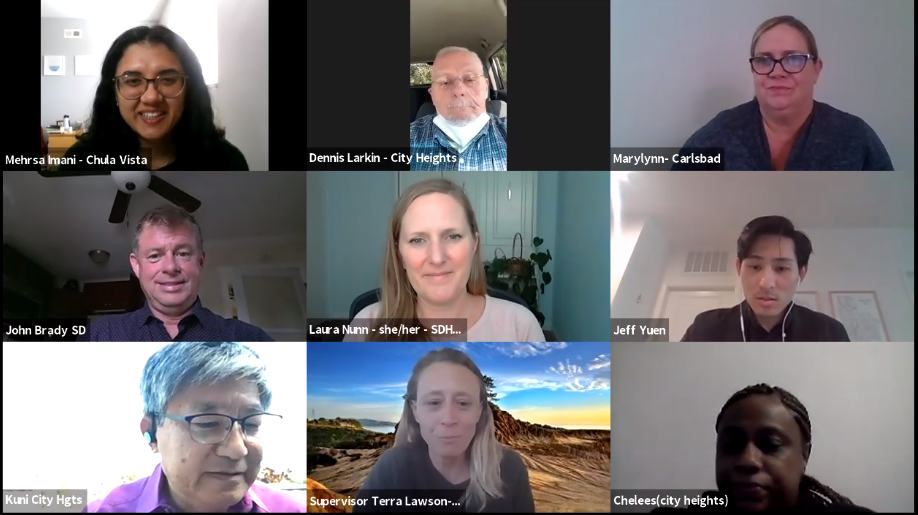
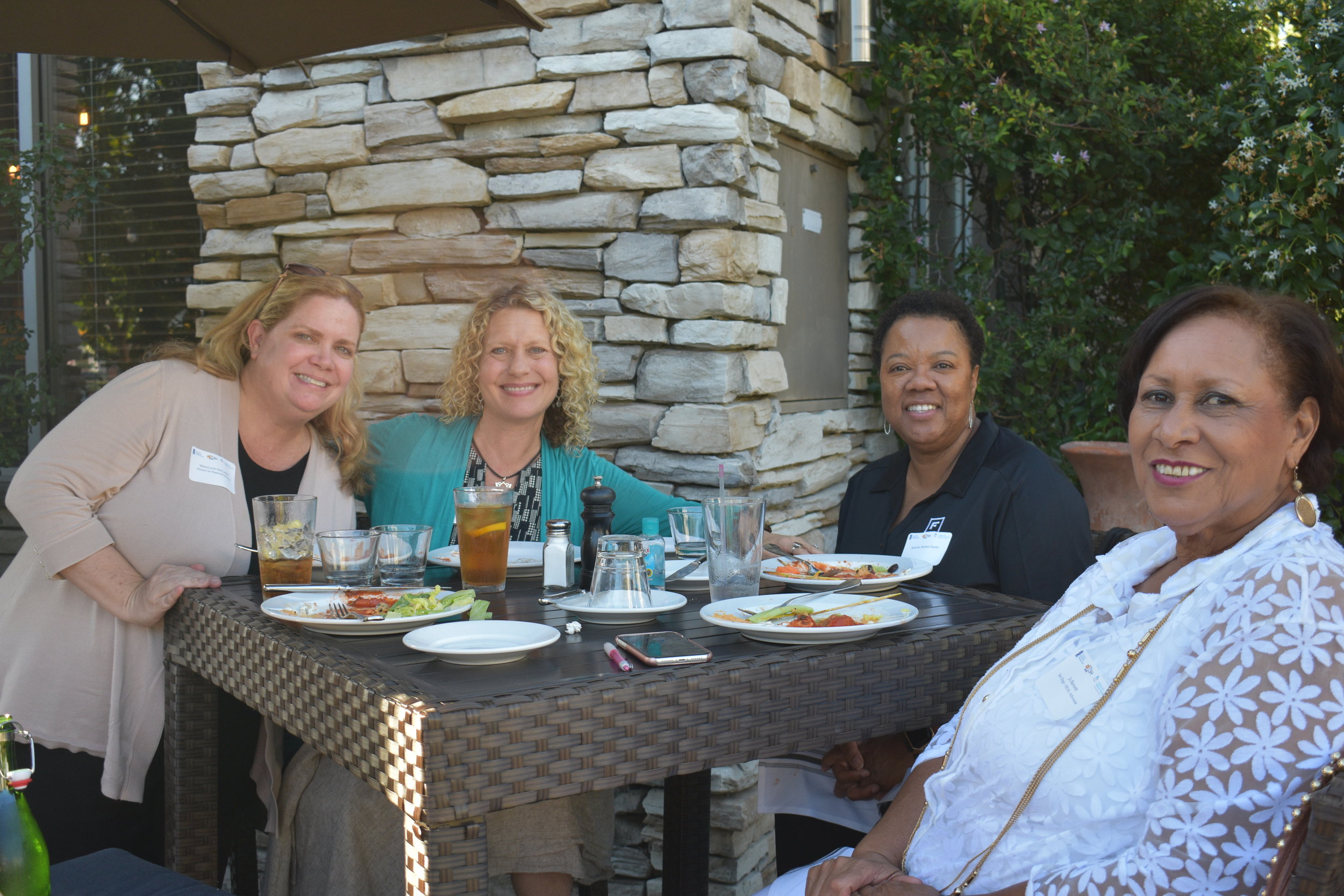
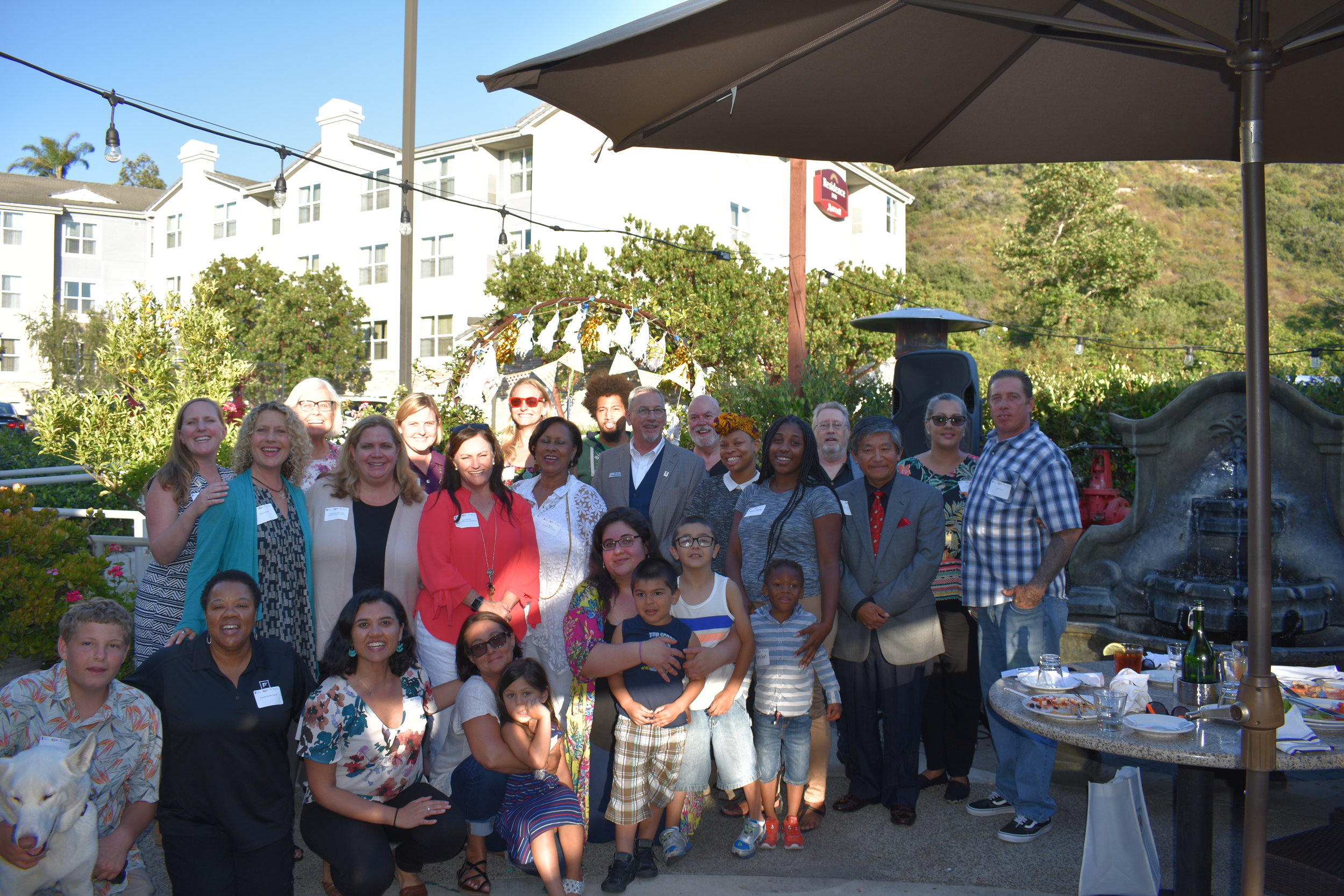
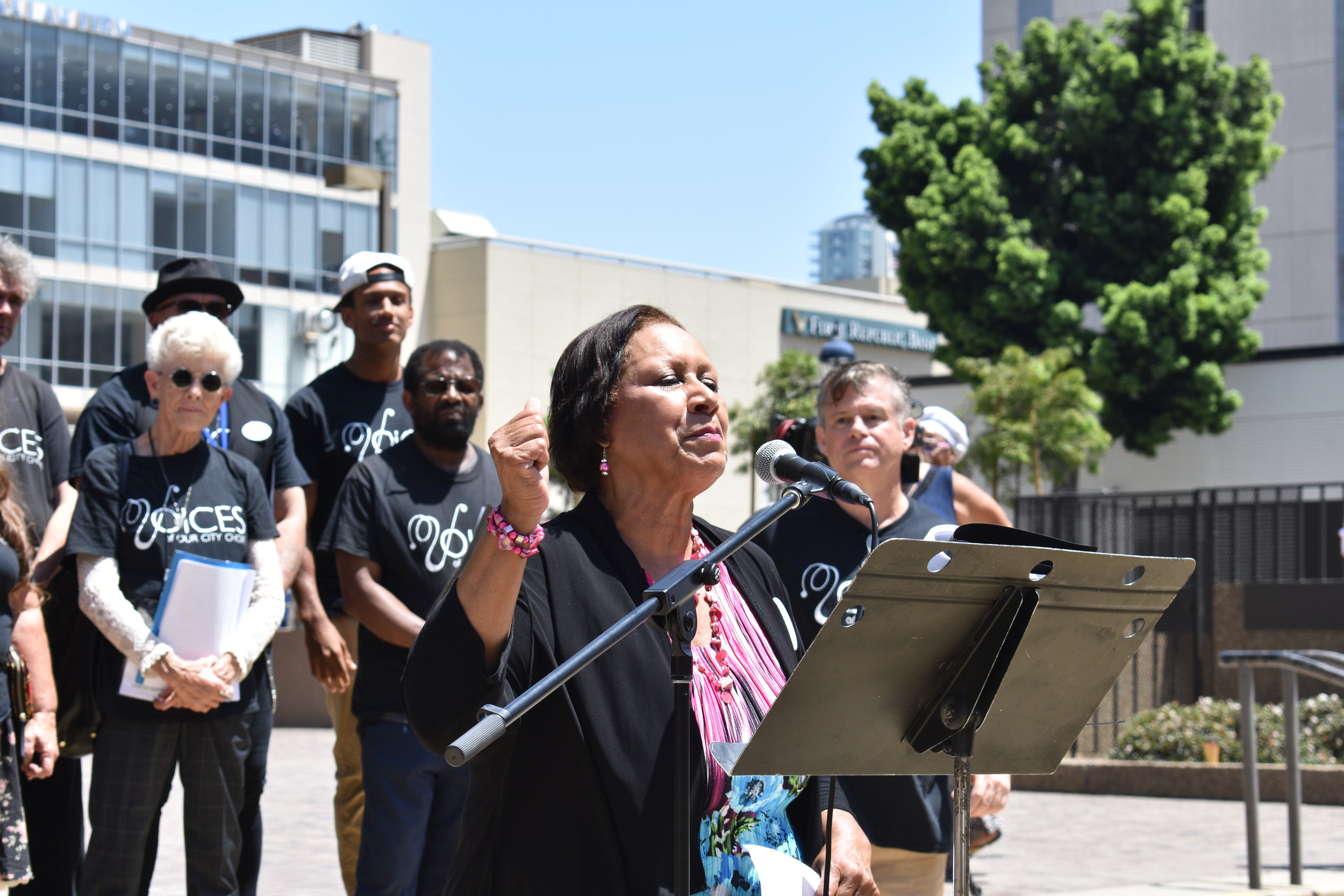
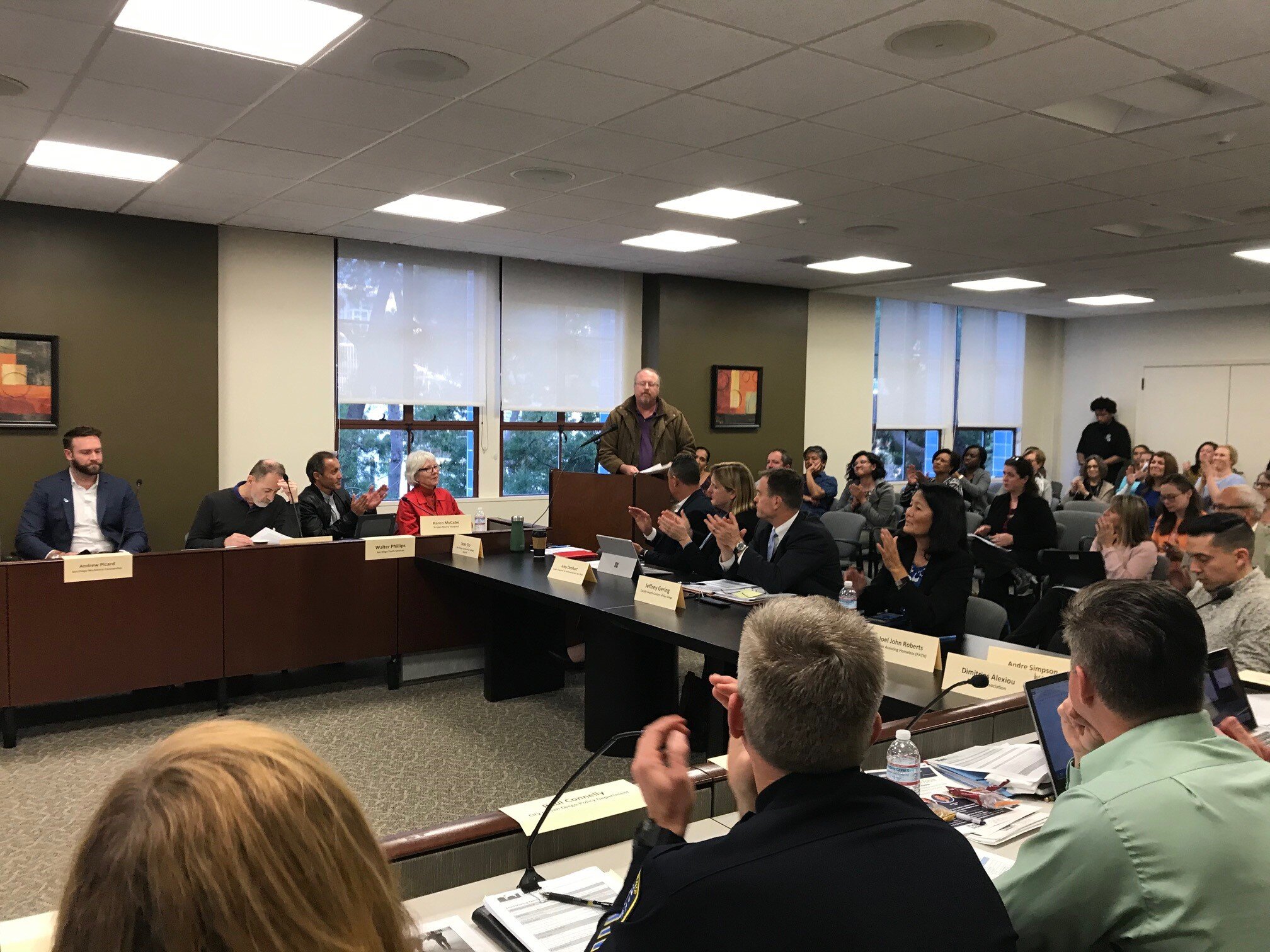


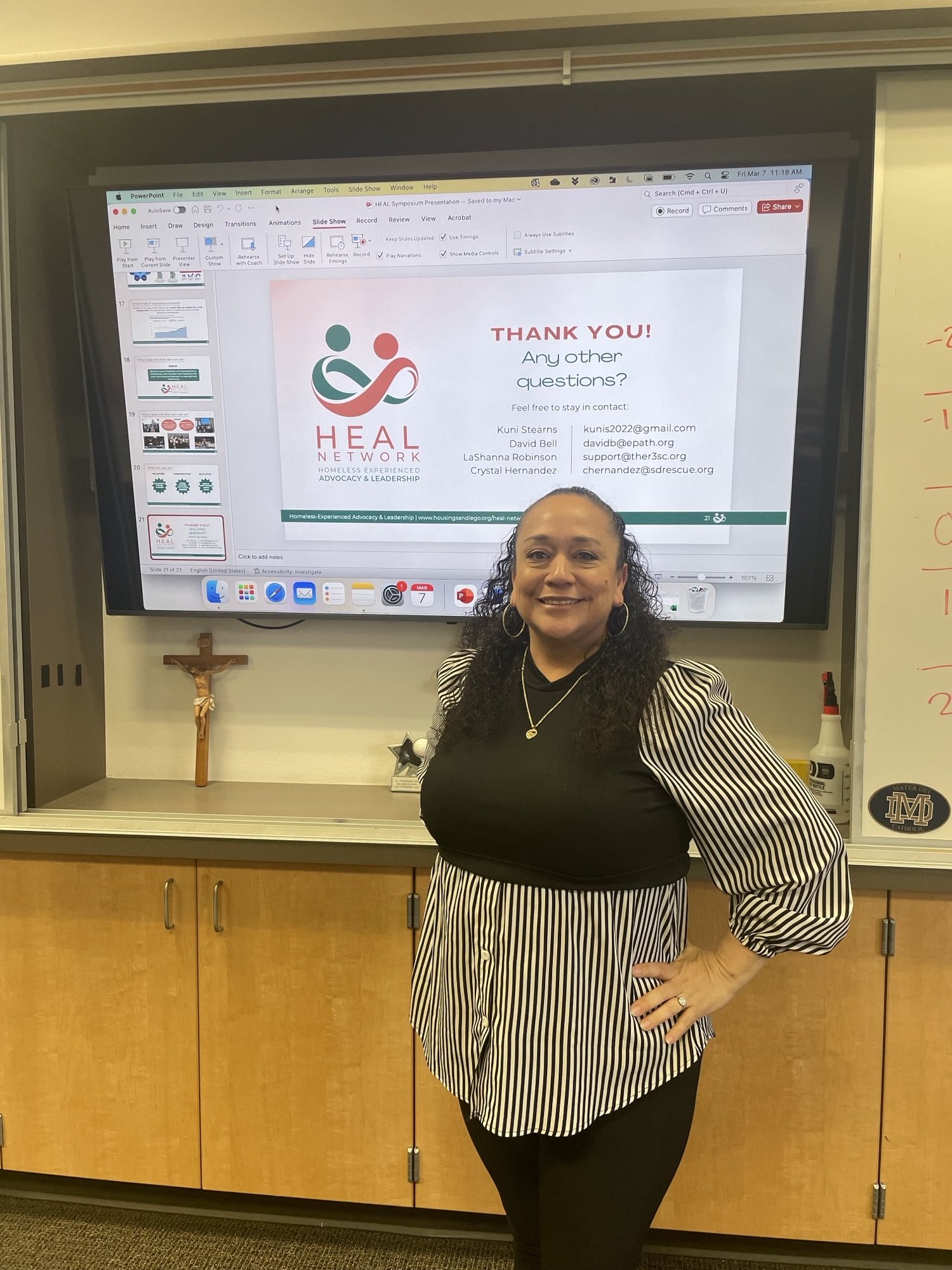
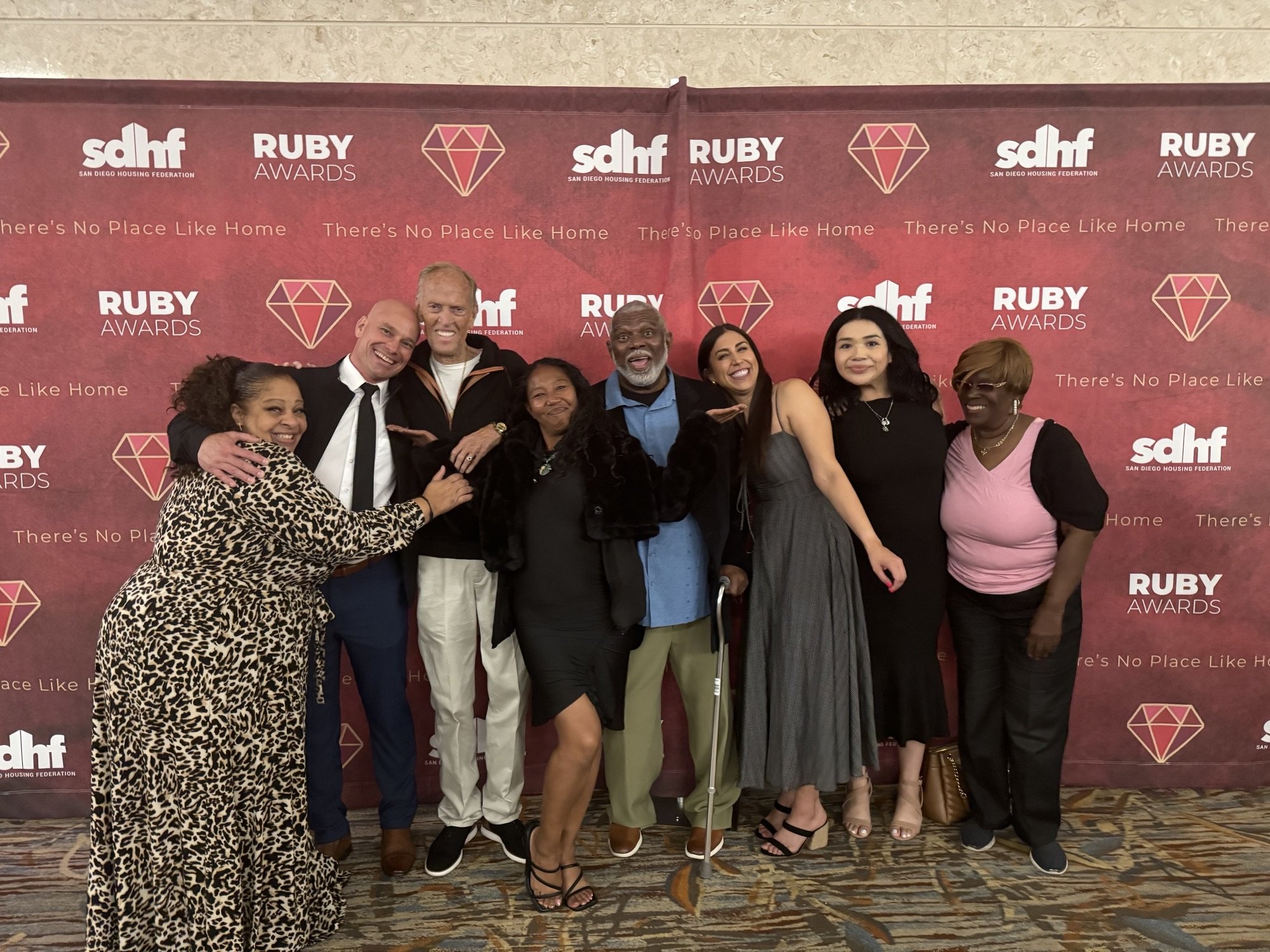







Get Involved with HEAL
HEAL Training (Hybrid format)
We are offering trainings in North & Central San Diego County and East & South San Diego County, between Spring and Fall 2025! If you are someone with lived experience of homelessness, participate in this 6-week training (2 hours each session), to learn about changing public policies towards real solutions for homelessness.
Interested in joining, click here.
Training Dates for 2025:
North/Central San Diego County:
Dates: June 4th- July 9th
Time: Wednesday at 6:00 pm (Virtual/In-person)
East/South San Diego County:
Dates: August 6th- September 10th
Time: Wednesday at 6:00 pm (Virtual/In-person)
Monthly HEAL Meetings (Virtual)
To continue organizing ourselves and keep the momentum built at our training, each HEAL cohort is continuing a monthly meeting. To learn more, contact jaylene@housingsandiego.org.
Past Events
HEAL Advocacy & LEadership Training
May - June, 2024
Six-week training to learn how to bring your story and experience with homelessness to affect public policy in addressing the issue. Analyze data on homelessness, learn about large scale causes and affects of homelessness in a region, become familiar with what elected officials and policy makers are doing to address the issue in North & Central County San Diego, develop your story, and organize a collective power with your cohort in tackling the issue locally and statewide.
July- August, 2024
Six-week training to learn how to bring your story and experience with homelessness to affect public policy in addressing the issue. Analyze data on homelessness, learn about large scale causes and affects of homelessness in a region, become familiar with what elected officials and policy makers are doing to address the issue in East & South County San Diego, develop your story, and organize a collective power with your cohort in tackling the issue locally and statewide.
HEAL Summit
Saturday, March 7, 2020
Half-day Summit for HEAL network to build a collective vision, set priorities, plan, and train.

